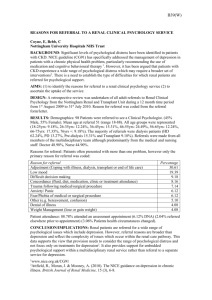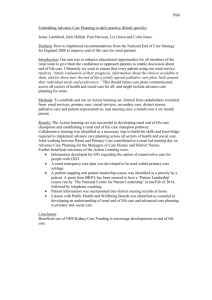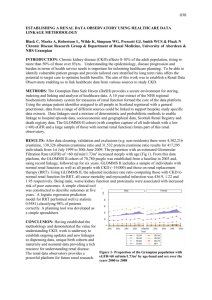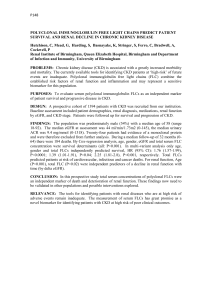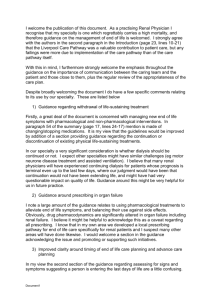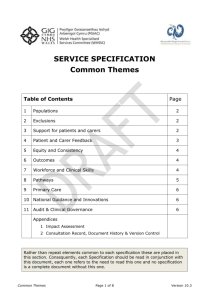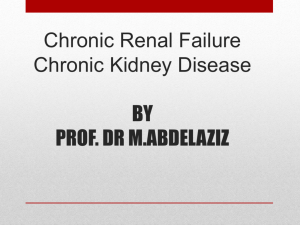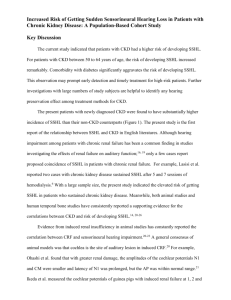Role of expert dedicated financial advise to service users on dialysis
advertisement
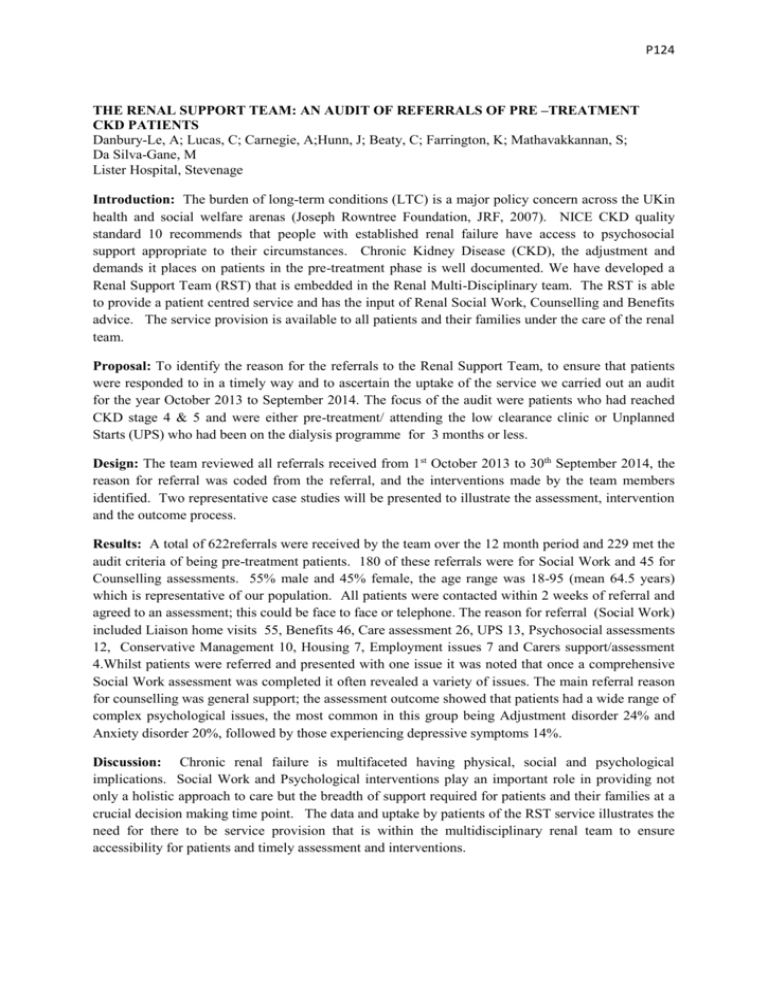
P124 THE RENAL SUPPORT TEAM: AN AUDIT OF REFERRALS OF PRE –TREATMENT CKD PATIENTS Danbury-Le, A; Lucas, C; Carnegie, A;Hunn, J; Beaty, C; Farrington, K; Mathavakkannan, S; Da Silva-Gane, M Lister Hospital, Stevenage Introduction: The burden of long-term conditions (LTC) is a major policy concern across the UKin health and social welfare arenas (Joseph Rowntree Foundation, JRF, 2007). NICE CKD quality standard 10 recommends that people with established renal failure have access to psychosocial support appropriate to their circumstances. Chronic Kidney Disease (CKD), the adjustment and demands it places on patients in the pre-treatment phase is well documented. We have developed a Renal Support Team (RST) that is embedded in the Renal Multi-Disciplinary team. The RST is able to provide a patient centred service and has the input of Renal Social Work, Counselling and Benefits advice. The service provision is available to all patients and their families under the care of the renal team. Proposal: To identify the reason for the referrals to the Renal Support Team, to ensure that patients were responded to in a timely way and to ascertain the uptake of the service we carried out an audit for the year October 2013 to September 2014. The focus of the audit were patients who had reached CKD stage 4 & 5 and were either pre-treatment/ attending the low clearance clinic or Unplanned Starts (UPS) who had been on the dialysis programme for 3 months or less. Design: The team reviewed all referrals received from 1st October 2013 to 30th September 2014, the reason for referral was coded from the referral, and the interventions made by the team members identified. Two representative case studies will be presented to illustrate the assessment, intervention and the outcome process. Results: A total of 622referrals were received by the team over the 12 month period and 229 met the audit criteria of being pre-treatment patients. 180 of these referrals were for Social Work and 45 for Counselling assessments. 55% male and 45% female, the age range was 18-95 (mean 64.5 years) which is representative of our population. All patients were contacted within 2 weeks of referral and agreed to an assessment; this could be face to face or telephone. The reason for referral (Social Work) included Liaison home visits 55, Benefits 46, Care assessment 26, UPS 13, Psychosocial assessments 12, Conservative Management 10, Housing 7, Employment issues 7 and Carers support/assessment 4.Whilst patients were referred and presented with one issue it was noted that once a comprehensive Social Work assessment was completed it often revealed a variety of issues. The main referral reason for counselling was general support; the assessment outcome showed that patients had a wide range of complex psychological issues, the most common in this group being Adjustment disorder 24% and Anxiety disorder 20%, followed by those experiencing depressive symptoms 14%. Discussion: Chronic renal failure is multifaceted having physical, social and psychological implications. Social Work and Psychological interventions play an important role in providing not only a holistic approach to care but the breadth of support required for patients and their families at a crucial decision making time point. The data and uptake by patients of the RST service illustrates the need for there to be service provision that is within the multidisciplinary renal team to ensure accessibility for patients and timely assessment and interventions.

